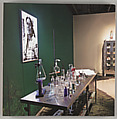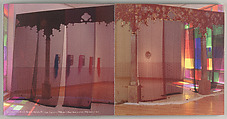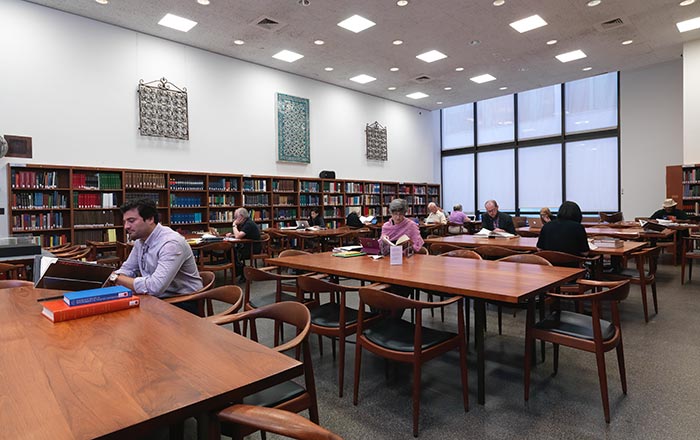Venus envy : chapters I-IV
Amalia Mesa-Bains American
Not on view
Catalog of a four-part exhibition series staged between 1993-2008 at the Whitney Museum of American Art, NY from January 21 - April 2, 1993; Williams College Museum of Art, Williamstown, MA, 1994; Bernice Steinbaum Gallery, NY, 1997; Menil Collection, TX, 2008; and SFMOMA, CA from June 18-November 6, 2022
"Venus Envy: Chapters I-IV documents the four-part Venus Envy Series of autobiographical installations completed over several decades by Amalia Mesa-Bains to chronicle four chapters in her life as a Chicana woman. It uses historic photographs in an accordion-fold structure to illustrate the series undertaken between 1993 and 2008. These images are accompanied by significant texts by art historian and critic Jennifer A. González. The Venus Envy Series is a narrative through personal and collective feminist perspectives of the artist Amalia Mesa-Bains's life stages, from early childhood to marriage to aging. The story unfolds through a number of altar-installations using an aesthetic of vernacular abundance and accumulation done in settings of religious splendor, secret spaces of the feminine, and archaic landscapes of paradise. It is situated in a historical continuum from the present to the colonial period of European expansion into the Orient to the time of the Aztec Empire, and it ends in a reflection on health challenges leading to healing and recovery. These contemporary practices of wonder and beauty are at the same time a woman's political remembrance of conflict and joy, sorrow and loss and resilience."-- Moving Parts Press website (viewed 06/22/2022)
This image cannot be enlarged, viewed at full screen, or downloaded.
This artwork is meant to be viewed from right to left. Scroll left to view more.



